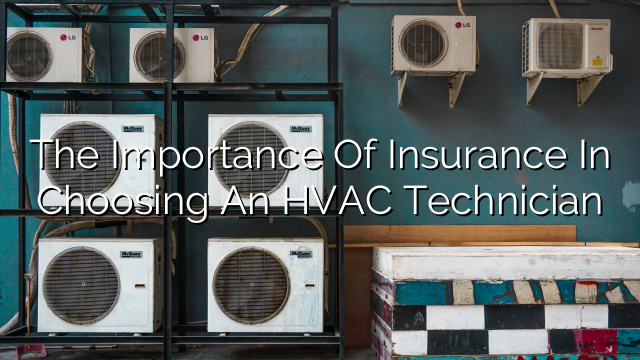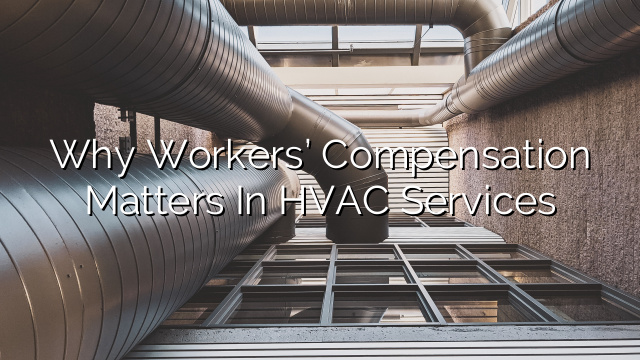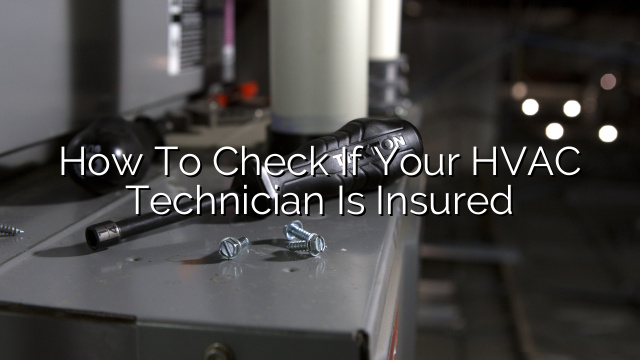Understanding the Importance of Insurance and Liability When Hiring HVAC Technicians
Whether it’s for maintenance, repair, or installation, hiring an HVAC technician is a crucial part of maintaining a comfortable and safe environment in your home or business. To safeguard yourself from any unexpected events, it’s essential to understand the insurance and liability aspects involved in hiring these professionals. This guide is designed to provide you with a thorough understanding of why insurance and liability are crucial and how to verify your HVAC technician is properly covered.
The Types of Insurance HVAC Technicians Should Carry
There are several types of insurance policies that HVAC technicians should have. Knowing these will help you determine if the technician you’re considering hiring is adequately insured.
- General Liability Insurance: This type of insurance protects against third-party claims of property damage or bodily injury that could occur during the job.
- Workers’ Compensation: If the HVAC company has employees, they should carry workers’ compensation insurance to cover any job-related injuries that their employees might sustain.
- Property Damage Insurance: This covers any damage that might be inflicted on your property during the HVAC work.
- Bonding: While not insurance, bonding provides a financial guarantee that the HVAC technician will complete the job according to contract specifications.
Why Insurance and Liability Matter When Hiring HVAC Technicians
Accidents happen, and when it comes to technical work like that performed by HVAC technicians, the risks of property damage or personal injury can be significant. Here are the reasons why it’s important to hire an insured technician:
- Protects Your Property: If any damage occurs during the installation or repair, the insurance should cover the costs of repairs or replacement.
- Covers Injuries: If the technician or any of their employees is injured on your property, workers’ compensation will cover medical expenses and lost wages.
- Ensures Professionalism: An insured technician is more likely to be a professional who takes their business seriously. It’s also a good indicator of compliance with industry standards.
- Avoids Legal Liability: If the technician is uninsured and gets injured on your property, you, as the homeowner or business owner, could potentially be held liable for their injuries.
How to Verify Insurance and Bonding of Your HVAC Technician
Verifying insurance and bonding before hiring an HVAC technician is a step that should never be overlooked. Here’s how you can do it:
- Ask for Proof of Insurance: Request to see certificates of insurance for general liability and workers’ compensation. Make sure the documents are current and have adequate coverage limits.
- Check the Bonding: For bonding, ask for proof of a surety bond and note the bond number and expiration date.
- Contact Insurer for Verification: To be entirely sure, you can call the insurance company to verify that the policy is active and inquire about the specific coverages.
- Look for State Licensing: Many states require HVAC technicians to have a license to work. A licensed technician is more likely to hold the requisite insurance and bonds.
Avoiding Common Pitfalls
Don’t let your HVAC service turn into a liability nightmare. Be aware of common pitfalls associated with not confirming insurance and liability details:
- Never Assume Coverage: Always verify insurance details regardless of how trustworthy a company may seem.
- Not Checking Policy Details: Make sure the insurance covers the kinds of work that the technician is going to perform.
- Neglecting to Keep Records: Keep copies of all insurance and bonding documentation for your records.
Frequently Asked Questions About HVAC Technician Insurance and Liability
- Q: Is it legally required for HVAC technicians to be insured?
A: While it is not a federal requirement, most states do have requirements for HVAC technicians to carry certain types of insurance, such as general liability and workers’ compensation. Always check your state’s regulations for specifics.
- Q: Can I hire an uninsured HVAC technician?
A: While you can technically hire an uninsured technician, doing so places you at substantial risk. Without the proper insurance, you could be liable for any accidents or damage.
- Q: What should I do if my HVAC technician cannot provide proof of insurance?
A: If a technician is unable to provide proof of insurance, it’s a significant red flag. It’s advisable to search for a different technician who can provide verifiable insurance documents.
- Q: How much is enough insurance coverage for an HVAC technician?
A: Coverage amounts can vary, but it’s important for an HVAC technician to have enough general liability insurance to cover the cost of your home should a major accident occur. Minimum coverage of $500,000 to $1 million is often recommended.
- Q: Does homeowner’s insurance cover damage caused by an uninsured HVAC technician?
A: Potentially, but this depends on your policy. Even if it does, your insurance may not cover the full extent of the damage, and you will likely be responsible for the deductible. Furthermore, your premiums could increase as a result of the claim.
Conclusion
When hiring HVAC technicians, checking for the right insurance and liability protection is not about doubting their skill or trustworthiness; it’s about protecting your investment and avoiding unnecessary risks. By ensuring that the HVAC professional you hire is properly insured and bonded, you are taking a crucial step to safeguard your property and finances. A reliable technician will understand the necessity of insurance and should be willing to provide all the required documentation. So, before you sign any contracts or agree to any services, take the time to verify these important details.










